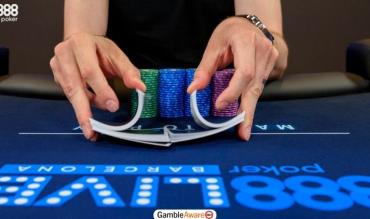Updated on September 3, 2025
Hollywood loves a poker dealer montage: slick shuffles, cards flicking through the air, a cigar balanced between chipped, yellow teeth.
Nobody needs to be that flashy.
But knowing how to deal poker properly is one of the most underrated skills a player can acquire. It makes you sharper, more observant, and in some cases, it even makes you money.
The History of Dealing
Before professional dealers were a thing, poker was a player-dealt game. The poor guy on the button had to shuffle, deal, and manage the action.
It was democratic, fair and sometimes a little dodgy, especially if your opponent had unusually long sleeves or a tendency to scratch their nose mid-poker hand.
As the game grew and casinos took over, dedicated dealers became the norm to ensure safety and efficiency. These days, self-dealt games are usually only seen in home games, pub leagues, and smaller social events.
Why Do People Deal?
Since you don’t have to, you might not see the point in learning to deal, especially if you usually play in card rooms with professional dealers. Knowing how to deal in Texas Holdem does offer some pretty decent upsides, and not just when playing for buttons on your nan’s kitchen table.
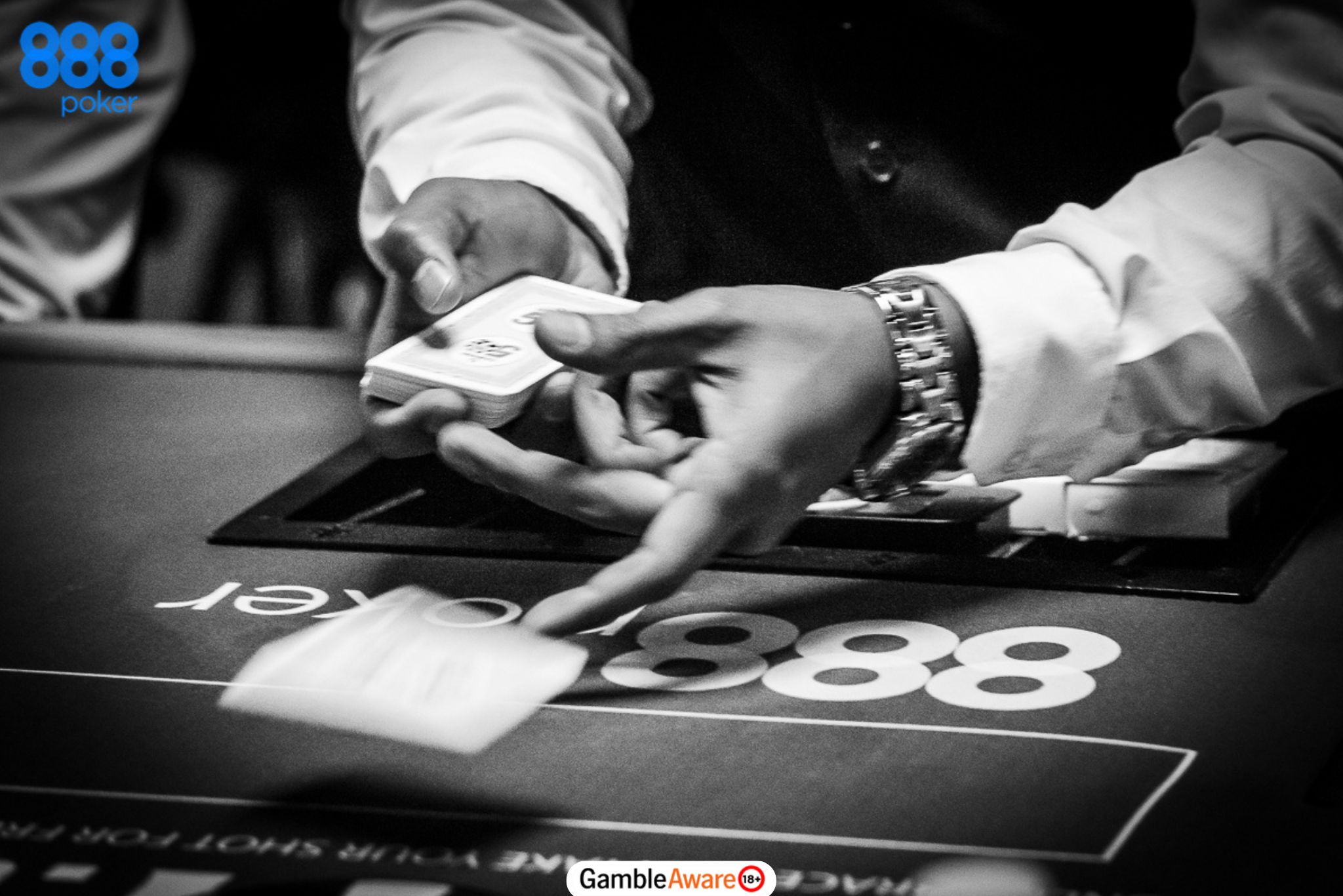
- Firstly, people often pay well for good dealers, especially on short notice. They’ll tip well, too, which makes dealing the only way to guarantee a profitable time at the poker tables.
- It can be beneficial in home games, where people typically want to have fun and relax. If your mates can’t be bothered to deal, and you’re good at it, you can negotiate an hourly rate in exchange for dealing.
- If you’re playing in the game, this extra cash can be a massive boost to your bottom line. You’ll earn a few brownie points, making it more likely you’ll be invited to play in future.
Everyone hates a bad dealer, so make sure your skills are sharp. If you’re slow or make errors when counting pots, you’ll piss people off, which can ruin a home game.
How Can Dealing Be Advantageous?
Knowing how to deal in poker can be advantageous at the tables, even if you’re not the one dealing.
- Spotting Errors
It helps you spot dealer errors and protect yourself from being a victim. This skill is a great plus, since these mistakes are usually irreversible, even when it’s not your fault.
- Counting the Pot
You also learn how to count pots quickly, which helps ensure the dealer pays you properly and prevents you from losing out on your poker chips value.
- Protecting Your Cards
You’ll be more likely to protect your cards from being incorrectly mucked, given you’ll know how easily it’s done.
- Managing Tilt
Dealing can help you manage tilt. Poker can get boring at times, especially if you’re card dead. If you make questionable decisions when bored, dealing while playing offers a distraction to keep you focused.
- Sense of Duty
Some people also enjoy the sense of duty and respect that comes with dealing. It’s an essential job: You’re the engine that keeps the game running. You get to be involved in every pot, and everyone appreciates your efforts.
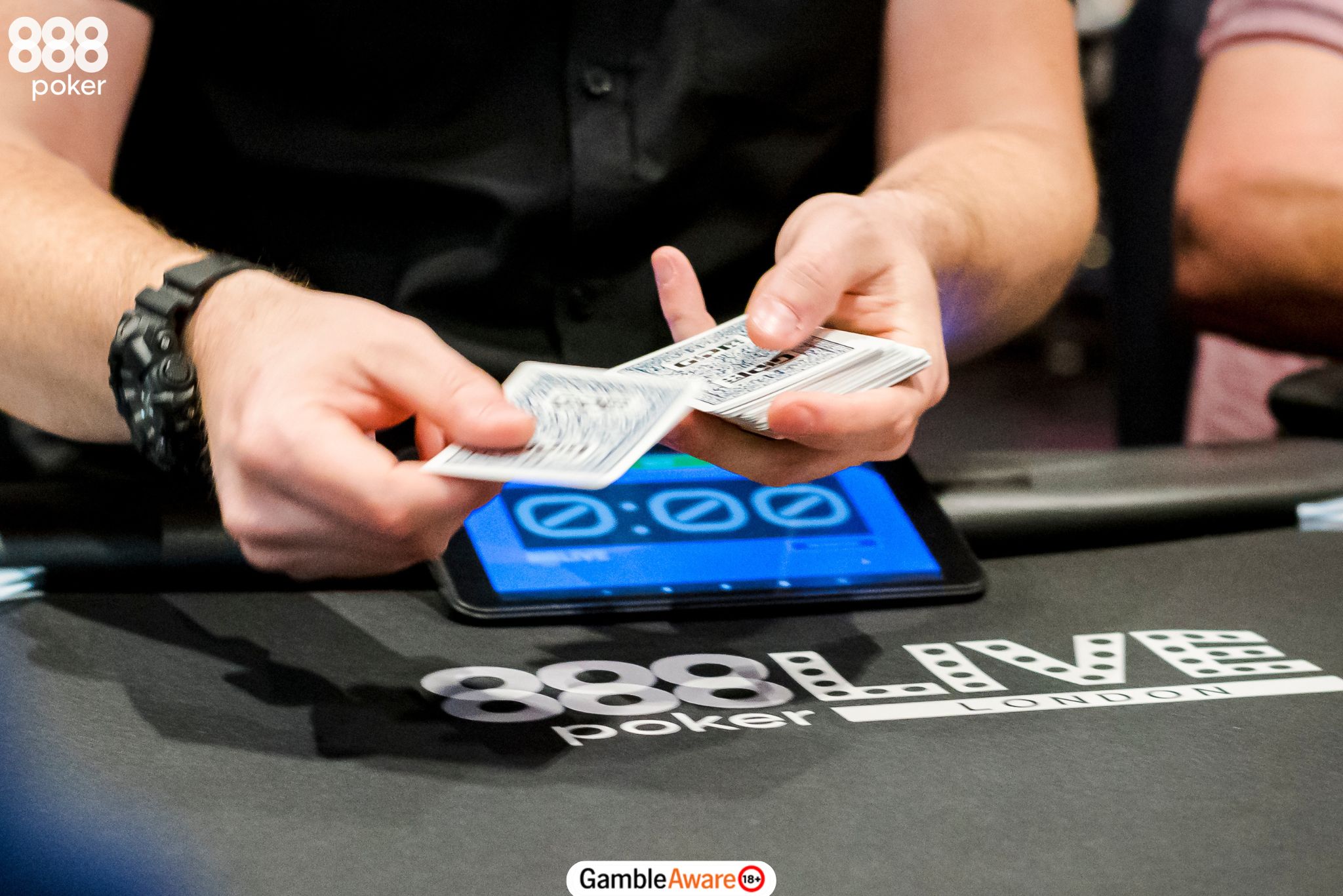
Strategic Advantages
Dealing has strategic advantages, too. Watching what everyone does is part of the job description, and so you can watch people very closely.
You will see every bet and player gesture, noticing quirks that you wouldn’t if you were focusing on playing your own hand. This valuable information can help you when facing off against the same opponents.
Dealing gives you access to higher-stakes games you might not be able to afford to play in yourself. You can watch better players and pick up proper GTO poker strategy by watching and listening to better players chat about them.
Even if not, you get to see how these higher-stakes games play without risking a penny. This inside look can provide excellent insight if you’re considering moving up and want to test the waters for free.
How to Deal Poker Properly
Now you know the benefits of dealing, here are some tips to help you do it properly!
Shuffling the Deck
This feature is one of the most crucial parts of dealing. A well-shuffled deck makes it harder to cheat and keeps things fair.
The key to a good deal is speed and thoroughness, and the best way to hit both criteria is by ‘washing the deck’.
This poker term refers to placing the cards face down on the table and mixing them up with your hands.
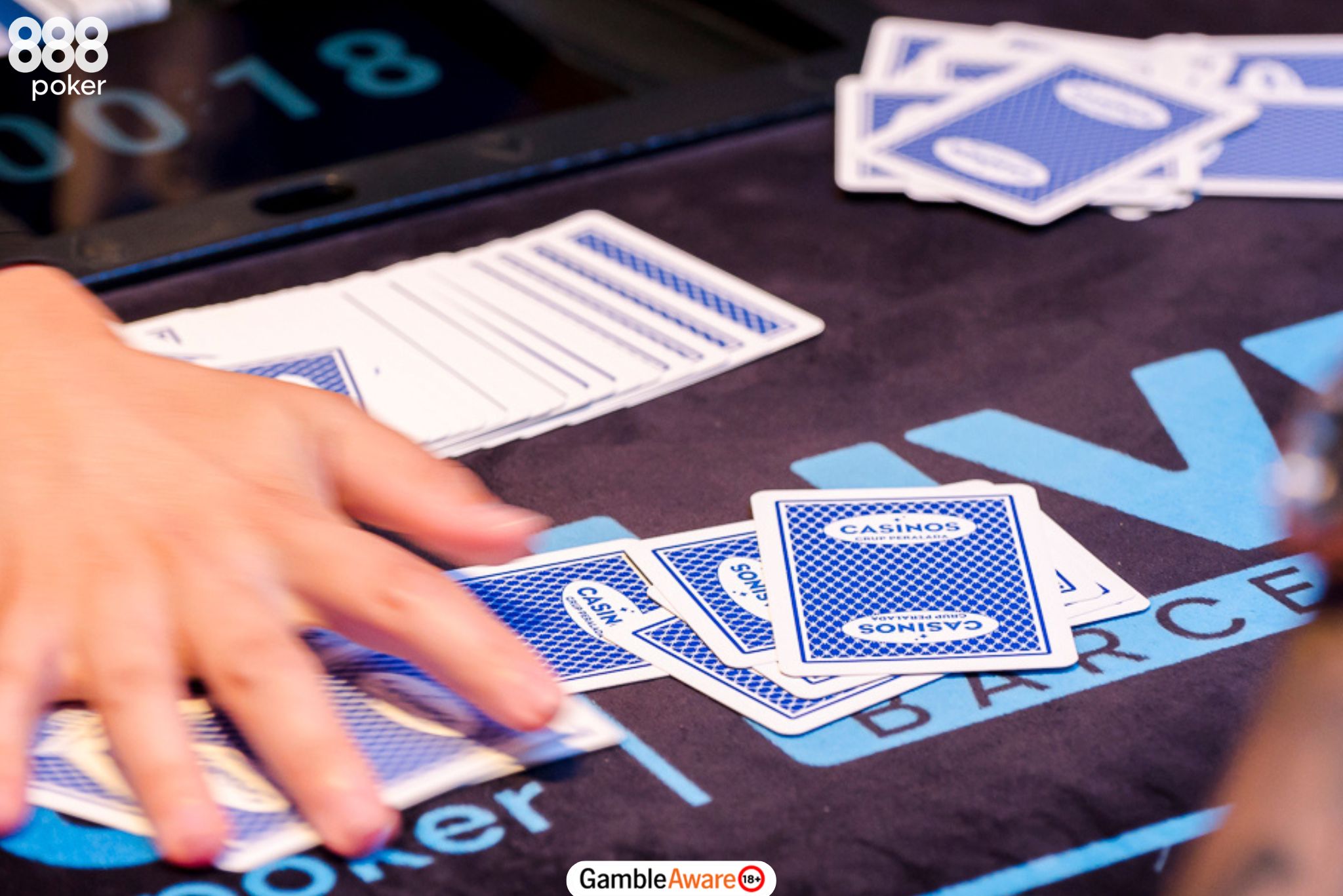
Once you’ve shuffled them enough, you can gather the deck, stand it on one of its long edges and drag it sideways. With a little practice, you’ll be able to straighten it out in a few seconds.
You should then cut the deck in case anyone caught a glimpse of a card during the wash.
| Pro Tip: Good dealers always hold the deck facing down or use a card guard to prevent people from seeing any of the cards. |
Setting the Button
After shuffling the deck, it’s time to move the dealer button. This button marks the spot to start dealing the cards and indicates which player will receive theirs first.
The key to moving the button is always to do it at the same stage in your shuffle because this prevents you from moving it twice by mistake.
Dealing the Cards
Once the button is set, you can begin dealing the cards. In Hold’em, all players receive one card starting with the small blind, moving clockwise around the table.
Once everyone has one card, they receive another, following the same order. When both players have two cards, it’s time for the action to start.
Managing the Bets
In most types of poker games, the dealer oversees maintaining order and managing the action during the hand. They will listen to player instructions and relay them to the rest of the table, allowing each player to decide before the action progresses to the next street.
Once a bet is made, dealers must ensure that all chips are correct and provide any players with change. When everything is in order, they can pull the bets together and move the entire pot to a convenient place in the middle of the table.
Note: Only the dealer is permitted to touch the pot, and they can spread it out to help players see better if asked.
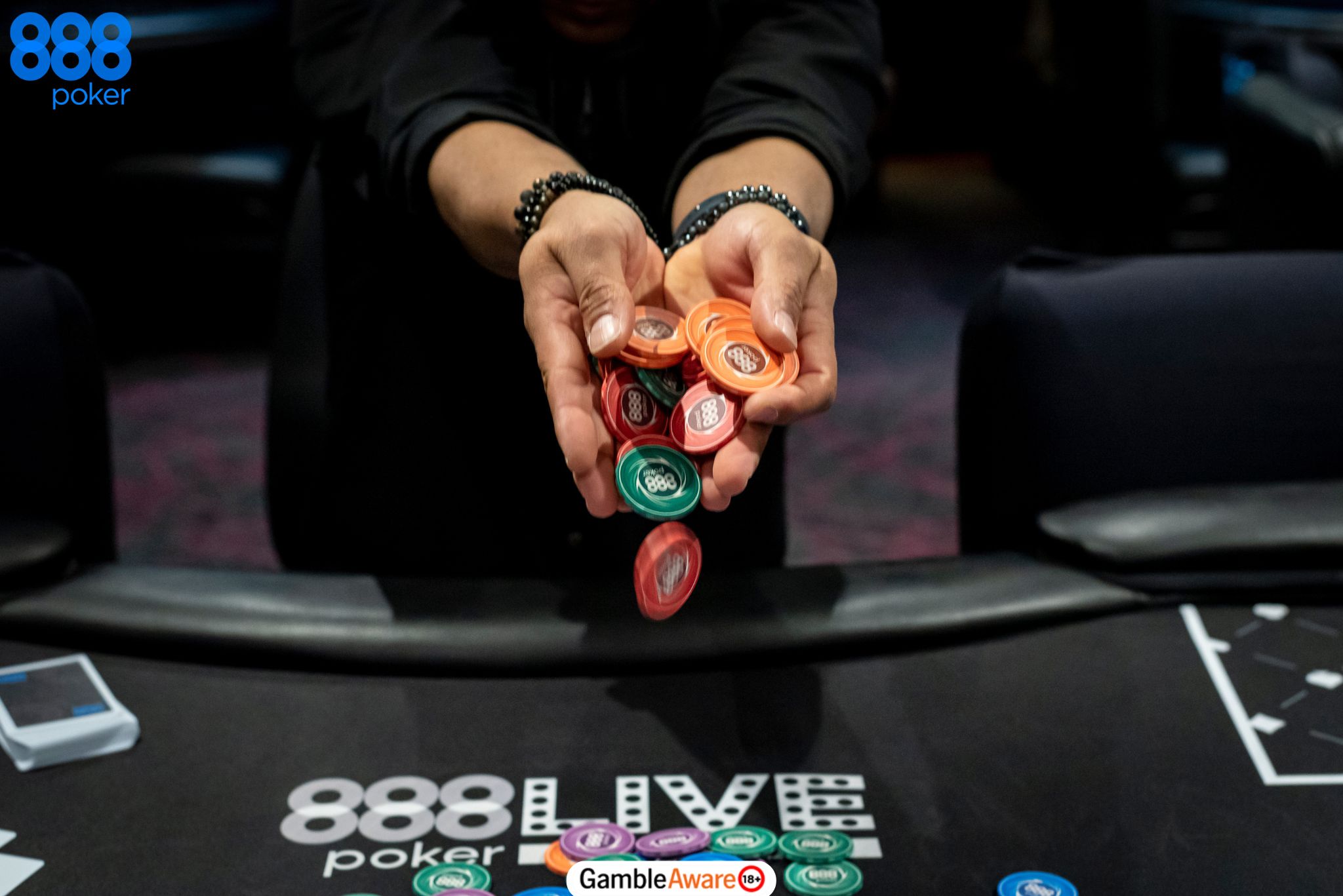
Burn and Turn
It’s critical to remember to burn a card before dealing the flop, turn and river. This action prevents cheating by stopping players from being able to see the next card in a marked deck.
Misdeal
If someone accidentally exposes a card during the deal, they will get a new card from the dealer. The exposed card will act as the first burn card before the flop.
If two cards are exposed, or the mistake would result in a player receiving two cards from the top of the deck simultaneously, this hand is considered a misdeal. The dealer must start again with a new shuffle.
How To Become a Poker Dealer
There’s no certification needed to be a poker dealer at a home game, as this responsibility is usually passed around the table from player to player from one hand to the next.
However, if you want to work as a poker dealer in a licensed casino or cardroom, there is a process that you must follow.
Check out this article and your local casino for more information on how to become a poker dealer.
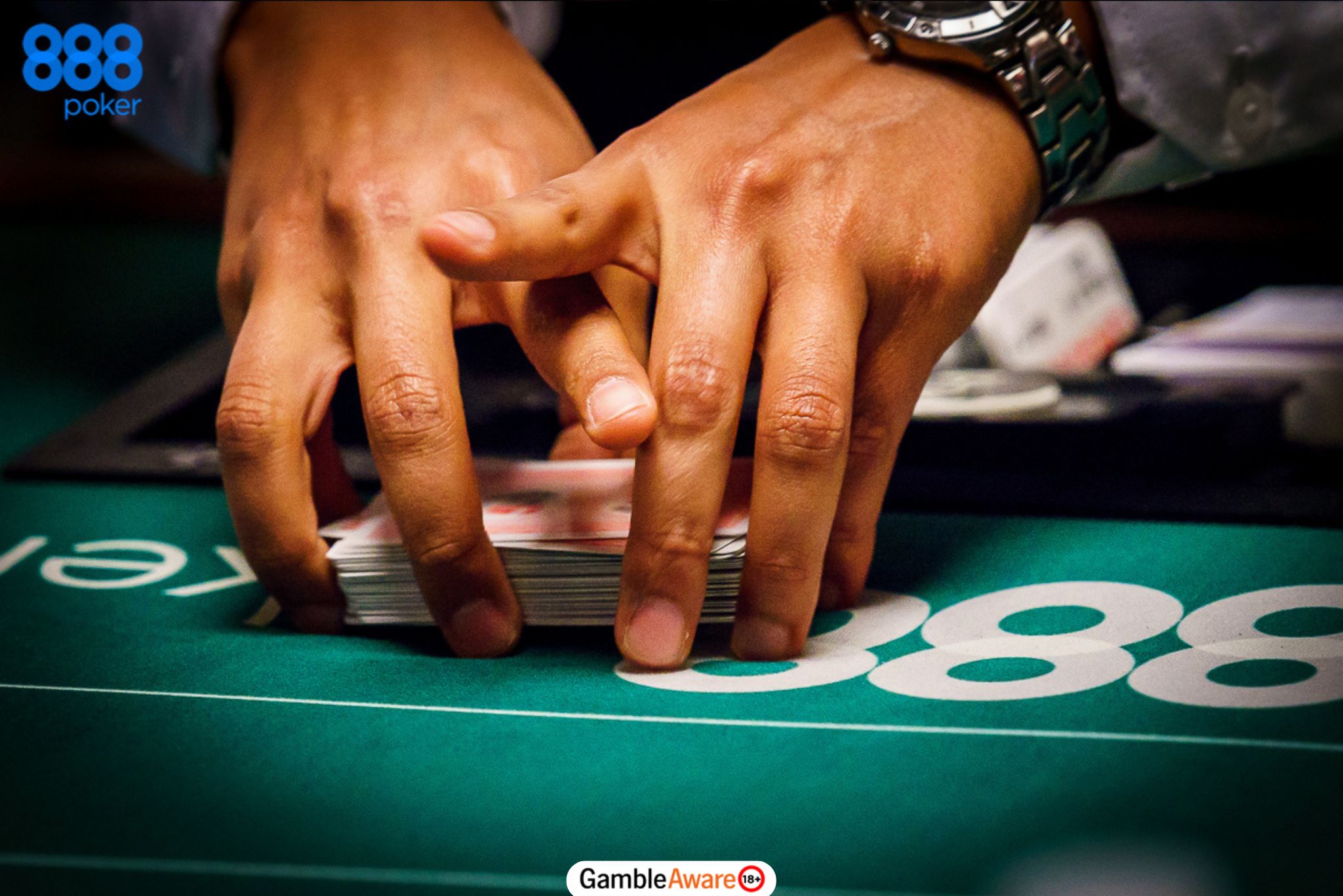
Final Thoughts
Though it can be hard work, dealing can be a fun experience and allow you to find a seat in games you wouldn’t otherwise get an invite to.
If you love poker or want to spend some time with your friends without risking any cash, dealing can be a great alternative.
How to Deal in Poker - True of False Quiz
- In the old days, poker was always dealt by a professional dealer.
- Burning a card before the flop, turn, and river helps prevent cheating.
- Knowing how to deal poker hands can help you spot dealer mistakes.
- If you deal slowly or make errors, players will usually thank you for trying.
- Dealing can keep you focused and reduce tilt when you are card dead.
- Only the dealer should touch the pot during a hand.
- A misdeal occurs if two or more cards are exposed.
- Dealing can earn you both respect and extra cash.
Poker Quiz - Answers
- False
- True
- True
- False
- True
- True
- True
- True
